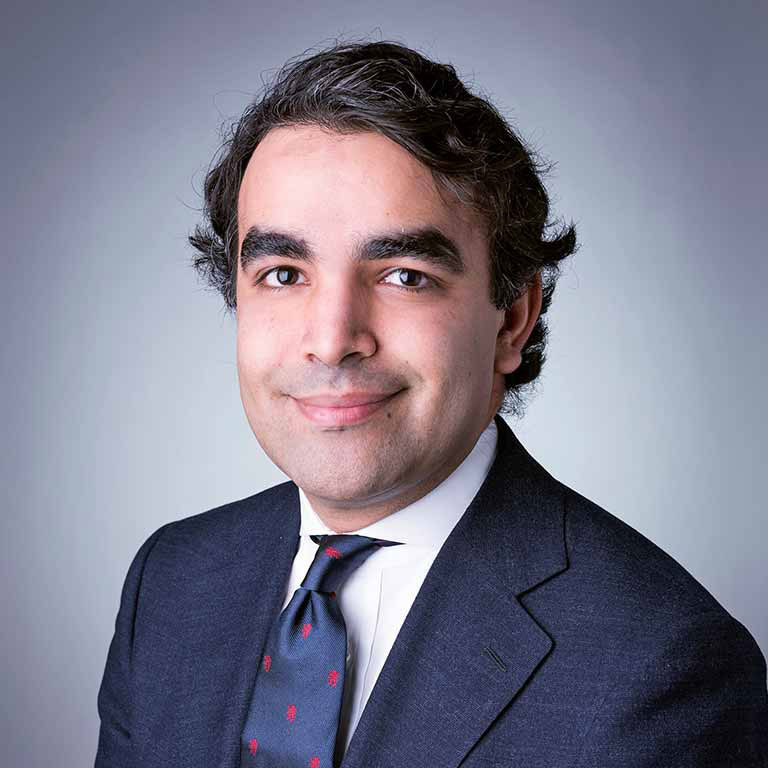This fall, Dr. Hussein Banai, an assistant professor in the Hamilton Lugar School of Global and International Studies, invites students to combine historical and contemporary knowledge in their studies of democracy in INTL-I 306: Democracy in Global Politics. The course will encourage curiosity, strengthen writing abilities, and foster an environment where differing opinions are discussed and dissected.

What type of students would you encourage to enroll in this course? What qualities should they have? What will you expect of them?
Banai: There is one quality above all else that I expect and hope leads students to taking this course: curiosity. I’m less interested in students’ educational backgrounds in particular fields or even their prior exposure to themes about democracy – students of all backgrounds and levels of interest are welcome to take the class. What I do care most about is that they are eager and motivated to learn about democracy for reasons of their own. Those reasons may not be as clear to them at the beginning, and indeed, for many, taking the course will be an exercise in discovering those underlying reasons.
What I do care most about is that [students] are eager and motivated to learn about democracy for reasons of their own.
Why is it important for students to take this course? What knowledge or skills will they gain?
Banai: This course combines historical and contemporary knowledge, normative and empirical theories, as well as political and academic critiques about democratic thought and practice since the advent of democratic Athens to the increasingly fragmented and eroding global democratic landscape today. Lest students be intimated by the vast scope and breadth of the course, however, our focus throughout will remain on the meaning and experience of democracy. Curiosity about the life and times of democracy will be further nourished through a set of writing assignments (essays) about democratic beginnings, triumphs, and crises.
What do you expect to be the most engaging or exciting assignment in this course?
Banai: Each essay assignment is designed to cultivate a particular form or aspect of writing. The first paper will challenge students to refine their descriptive skills, the second focuses on mastering the craft of synthesizing information from conflicting perspectives, the third builds on analytical reasoning, and the final, research paper challenges students to produce a normative argument of their own in response to issues of democratic decay and/or reform. There is gravitational variability among students among these different assignments. Different students will find one or two of these assignments most engaging according to their own curiosities and developing interests.
My approach in this class is to demonstrate how all levels of democratic participation are intricately tied to global politics.
Will your class examine federal, state and local politics as well as global politics?
Banai: Yes. My approach in this class is to demonstrate how all levels of democratic participation are intricately tied to global politics. In the regional and national case studies that we examine, we typically focus on the micro- and macro-level engagements across governments and civil society.
To what extent will students engage in discussions of current events, such as the coronavirus, the 2020 US presidential election, and others?
Banai: From the very first class meeting to the concluding discussion, this course will draw in and on contemporary events, crises, and challenges to contemplate the fate of democracy in our own times. Accounting for contingency and context are major themes of this course, which can only be best demonstrated through our own lived experiences and those of fellow travelers in other towns, cities, provinces, states, and regions of the world.
One fundamental element of democracy is the importance of protecting the minority’s opinions. How will you ensure that multiple perspectives are discussed and respected in a class as political and controversial as this one?
Banai: By encouraging disagreement and, if none appear, improvising it myself in the classroom. One of the cardinal rules of any college seminar, I’m fond of highlighting to students throughout the semester, is to respect each other’s right to have opinions but not necessarily the contents of those opinions. Over the years, students with views from across the political and ideological spectrum have taken this course and I cannot recall a single time that anyone has had trouble with this principle.
What, to you, is the most interesting aspect of this course? What, if anything, do you learn from teaching it?
Banai: The contingency and dynamism of it all. Each year brings fresh issues, perspectives, and backgrounds, which simply were not present the previous year or semester. This course, like democracy itself, is a living, evolving phenomenon.
From the very first class meeting to the concluding discussion, this course will draw in and on contemporary events, crises, and challenges to contemplate the fate of democracy in our own times.
View this course
Learn about the Democracy minor
Photo credit (banner): Kyller, Flickr Creative Commons, CC BY-NC-SA 2.0


 The College of Arts
The College of Arts